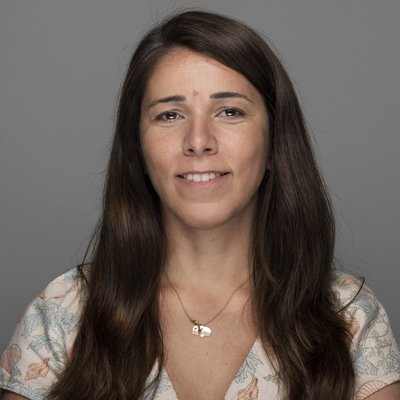Senior Researcher at Science for Change

You have been a member of numerous EU-funded projects that seek to expand science communication and foster citizen engagement. How can researchers and journalists alike engage citizens in the generation of knowledge about society?
Perhaps my first suggestions would be establishing a common ground between researchers and journalists communities. Both need to understand how their own fields work, rules (including unwritten ones), pace, priorities and expectations. Other transversal conversations on citizen engagement, inclusion, accessibility, diversity should also take place on an early stage. Connections can start locally and then widening the spectrum to national or international level, depending on the focus of the research field or level of target media audiences. Getting to a common ground is the first step to establish a common agenda which can/should help to bring both citizens and journalist perspectives to scientific research, reshaping or broadening research question(s), methodologies, and innovative ways of presenting data. Ultimately the highest level of collaboration would be establishing co-creation frameworks between researchers, journalists and citizens, from the early beginning of any project. To deepen on how to spur these processes, under the NEWSERA project, we established a co-creation lab for citizen science projects to work with journalists. We based our approach on exploring what we called “citizen science journalism” as an emerging field where citizen science and data journalism come together. Cooperating in the definition of citizens’ information needs and properly designing and enriching datasets in a participatory and transparent way can contribute to the use of those data to empower change for the benefit of local communities and advocate for democracy. This involved defining strategies, interdisciplinary capacity building, misinformation and supporting the implementation of short pilots that led to different articles in the media with a strong focus on data journalism and digital storytelling. This process and case-studies were the basis for a blueprint for citizen science journalism with and for science journalists (available here) and the Data4CitSciNews exhibition.
How do infrastructures matter for citizens?
As many others have mentioned, the role of infrastructure becomes recognisable when its functioning is affected or disappears. Digital infrastructures, including databases, data centres, and information management systems, following Open Data standards, can facilitate data-driven decision-making for all stakeholders involved, including citizens, and are key, for instance, to the uprise and momentum of the field of citizen science, widening the participation of citizens in multiple phases of the research process. In order to facilitate data justice it is necessary to consider accessibility, language, equity, diversity and inclusion aspects, and a careful design should be able to contribute to enacting citizens’ agency. Moreover, roadmaps for sustainability models for long-term funding that last projects/political cycles are also fundamental for their maintenance. I would recommend reading a brief reading on the take away ideas from “Data Justice in participatory projects” collective session at MyData conference held in Helsinki, last year.
How should knowledge about infrastructures be communicated and what role can journalists, researchers or public officials play?
To answer this, I will give a specific example, during the pandemics crisis we observed a disconnection between multiple infrastructure, multi-level stakeholders or communication strategies adopted. We clearly need to learn from this (and responses to other crises) in order to build resilience. Currently and for the next 3 years, the COALESCE project, born from the 8 SwafS-19 sister projects (including NEWSERA), will establish the European Competence Centre for Science Communication, under a virtual platform and a physical network of National and Regional Hubs. The project will respond to a necessity of 1) centralising and delivering best practices and effectiveness in science communication, and 2) addressing issues concerning public distrust and policy responses, to enable multiple stakeholders to respond quickly to scientific crises. For this, we are currently understanding needs together with multiple stakeholders (including researchers, journalists, public and private organisations, science communication professionals, journalists and citizens) under specific topic areas (climate, health, AI and Water) and will be working on knowledge consolidation to co-create resources, tools, roadmaps, training, among others. Our main goal is to become the EU reference hub for science communication and that best practices sharing in scicomm becomes a regular practice, supporting recognition and professionalisation of the field. Hopefully we can share more information soon.